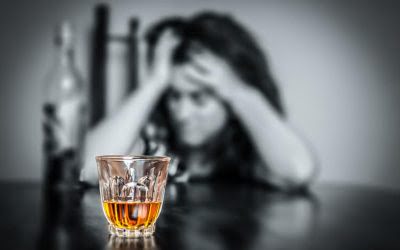You can receive 24/7 text support right away and at your convenience. There is no obligation to enter treatment and you can opt out at any time. Remove all alcohol from your home or ask a friend or family member to do it for you. This includes beer, wine, and liquor, as well as products that contain alcohol such as rubbing alcohol and vanilla extract.
- Programs such as inpatient or outpatient rehab, medical detox, individual or family therapy and support groups are available.
- This kind of deterioration is responsible for disease like Alzheimer’s, which we can lower the risk for when we cut down on heavy drinking.
- You may decide to seek medical treatment for your withdrawal symptoms or decide to enter a professional detox or rehab center.
- Below I share some key information so you can determine if weaning off alcohol is right for you.
- Based on your medical history, your doctor can advise you about the safety of the taper.
Choosing to taper off alcohol is an admirable decision and a step in the right direction. As with many self-detox methods, the risks and rewards go hand in hand when attempting to overcome an alcohol substance use disorder. But, with a little prior knowledge on how to taper off alcohol, adequate planning and professional consultation from a healthcare provider, it can certainly be done. As a Certified Professional Recovery Coach, I often speak with people who want to wean off alcohol. The thought of abstaining from alcohol completely can feel daunting, and in some cases, it can even be dangerous without medical supervision. Below I share some key information so you can determine if weaning off alcohol is right for you.
How To Safely Taper Off Alcohol
It is only advisable to direct taper if the preferred drink is beer with a low alcohol percentage. Avoid taking prescription drugs that your doctor hasn’t prescribed to you. If withdrawal is so uncomfortable that you’re turning to how to taper off alcohol drugs for comfort, you should contact your doctor or a rehab center to discuss medically supervised withdrawal. While the safest way to taper is with professional help in a detox facility, this may not be an option for everyone.

However, your body is adaptable, and after a period of regular, heavy drinking, your nervous system will adapt to the presence of alcohol. Following medical detox, individuals are typically encouraged to enter a comprehensive addiction treatment program, which may include therapy, counseling, and other therapeutic modalities. Once your taper is complete, discard or immediately give away any remaining alcohol in your house and try to avoid high-risk environments such as bars, liquor stores, casinos, etc. The hardest thing will probably be to stop yourself from starting again. I’ll be honest, your chances of staying sober on your own are slim to none.
Fentanyl Overdose: Signs, Symptoms, & Treatment
In contrast, robust evidence supports quitting alcohol while under medical supervision. If you struggle with drinking, the safest way to quit is under a doctor’s care. If you drink heavily, your doctor may recommend quitting with the help of a medical detox center. In medical detox, you receive around-the-clock care from doctors and nurses to help prevent and treat alcohol withdrawal symptoms and their complications.
Just because you had 8 drinks instead of 6 one day doesn’t mean you’ve failed, especially if you still drank the same or less than the previous day. Maybe you just need to set more realistic goals for yourself and slow your taper. The chances of seizures and DTs are low if you’re tapering, but they happen even in controlled rehab environments.
Choosing To Wean Yourself off Alcohol
You could post about your experiences anonymously online in r/dryalcoholics, they’re a fairly open and supportive group of people. When I was down and super depressed, talking about my experiences on there helped get me through and made me feel less alone. I’m not saying smoking weed all day is a healthy coping skill. But from a harm reduction standpoint, it’s much less likely to get you into trouble than alcohol, pills, or harder drugs. Don’t quit other lighter substances while you’re detoxing from alcohol.
- This is offered to patients with moderate to severe Alcohol Use Disorder, having the goal of achieving abstinence.
- Tapering can help you overcome alcohol dependence, which is a side effect of chronic alcohol use that causes cravings and withdrawal.
- For this reason, you should always talk to your doctor before attempting to quit drinking.
You should not begin a tapering plan before talking to your doctor. Based on your medical history, your doctor can advise you about the safety of the taper. Reducing the amount of the chosen substance consumed daily is known as a direct taper, but it may not be effective for everyone.
Benefits of Tapering off Alcohol
This is especially true if you are suffering from an alcohol use disorder. Addiction alters the chemical balance in a person’s brain, making it extremely difficult to quit drinking alcohol on one’s own. Benzodiazepines are the most common medications physicians use to taper alcohol and reduce withdrawal symptoms. Before a doctor begins a tapering plan with medications, they will assess the medical stability, including vital sign stability, and pattern of withdrawal symptoms in the patient. Tapering off alcohol is the act of slowly reducing alcohol intake until a person becomes completely abstinent. Tapering off alcohol to reduces potential withdrawal symptoms and decreases the likelihood of a potentially fatal withdrawal from alcohol in individuals who consume alcohol on a regular basis.
Quitting abruptly can be dangerous without medical supervision due to potential withdrawal symptoms. Gradually decreasing alcohol intake through supervised tapering can make quitting safer and ease withdrawal severity. When they suddenly quit drinking, the brain continues its hyperactivity, but alcohol no longer suppresses the effects. This can cause seizures and delirium tremens, a severe form of withdrawal marked by tremors and hallucinations.
It’s vital to speak with a medical professional before you begin weaning off alcohol to ensure you have a plan to do so safely. We publish material that is researched, cited, edited and reviewed by licensed medical professionals. The information we provide is not intended to be a substitute for professional medical advice, diagnosis or treatment. It should not be used in place of the advice of your physician or other qualified healthcare providers. Little data is available about the safety and effectiveness of alcohol tapers.

